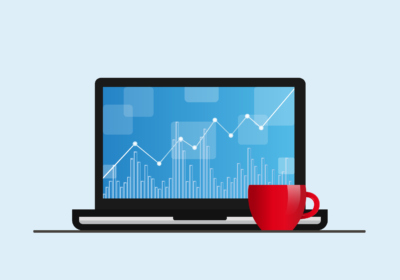The Bank of New Zealand is exceedingly worried about its economy coming to a standstill following the confirmation in the ANZ Bank Business Outlook survey of sinking business confidence.
Stephen Toplis, Head of Research at BNZ said, “As each day passes, the likelihood of our alternative scenario, of an economy stumbling to near-recession, increases.” This comes on the heels of Prime Minister John Key’s remark to journalists that it was crucial to “keep Chicken Licken at bay” and not talk the economy down.
It was rather apparent that Key has either misinterpreted or been misinformed about the results of the ANZ survey, which indicated that a net 29% of business were cynical about the economy, which is being touted as the lowest level of business confidence in six years, when New Zealand was starting to bounce back from the global financial meltdown. Key had previously stated that sentiment had been positive.
ANZ, on the other hand, had described the economy as “approaching ‘stall speed’.”
In keeping with that, BNZ pulled down its projection for economic growth and is now expecting it to touch a low point at about 1.7% annual growth in mid-2016. Simultaneously, it is worried about the numerous indictors that are pointing to the possibility of a weaker outcome.
“If the general tenor of the (ANZ) survey deteriorates any further, which seems entirely plausible, then our expectations will start to look decidedly optimistic,” explained Toplis. He went on to add that the agricultural (dairy) industry was definitely experiencing a downslide, and every other sector also had “below-average expectations for activity growth. The only sector within cooee of optimism was services, which is likely to largely reflect the booming state of the housing market and those who can benefit from such.”
At a post-Cabinet press conference earlier this week, Key declared that the business outlook was “still net positive.” However, reporters were quick to point out that sentiment was negative and has been weakening for five consecutive months.
“We run the risk of talking the economy down,” Key said, pointing to the ‘own activity’ indicator as being “much more optimistic.”
“Everyone understands we need to keep Chicken Licken at bay,” he stated, referring to the scare-mongering bird in a children’s fable who foretells that the sky will collapse. “Yes, we will grow slightly slower than last year, but we’re still expecting 2 to 2.5 percent,” he said.
Key also mentioned that while unemployment may increase, it was important to remember that New Zealand enjoyed one of the highest rates of people employed in the rich countries’ club, the OECD, and that participation rate (a measure of those working and looking for work) was also among the highest in the developed world.
The current economic catastrophe that few New Zealand politicians are acknowledging is impending and could ultimately lead to a reconsideration of offshore and domestic negotiations.
The assertions made by financial pundits and politicians that the Chinese economy would not fall from grace and that the dairy industry will bounce back in a season or two are surprisingly positive.
Financial gurus in New Zealand are of the opinion that just because the current economic condition is being downplayed, it does not mean that the people should not prepare to take an alternative course to steer their ships in choppy waters.
It is also believed that most Chinese financial experts do not have much of an idea about the fate of their share market in the coming weeks and that their assurances are unreliable. The current “levelling off”, as it has been labelled, was anticipated from the beginning of this year and most analysts did get it right. However, “levelling off” can turn into descent in no time. In fact, there could be another global economic meltdown in the offing, or it could be just another passing storm, which enormous Chinese money printing may correct before things go out of control.
It is apparent that the Chinese economy is undergoing a major transformation to better fall in line with more democratic financial systems in the Western world. And it is not as if the Chinese economy is a miniscule one to go unnoticed, without leaving an impact on the rest of the world.
It is the second biggest economy globally and probably one of the most complex ones at that. Aside from the state-controlled economy, there is also a similarly gigantic but extremely ambiguous shadow economy, both of which have been battered by exposure to world financial anxieties in the recent months.
Meanwhile, after experiencing a slide last week due to the retreat in the dollar, gold had steadied on Monday, but speculation that despite the current market mayhem, the U.S. Federal reserve may go on to raise interest rates this year took its toll on the yellow metal.
Sydney-based Daniel Hynes, senior commodity strategist at Australia and New Zealand Banking Group Ltd., stated over the phone that futures for December lost 0.3 percent to $1,136.10 on the Comex in New York.
Gold prices displayed an almost week-long rally as disappointing Chinese data upset the U.S. equity markets, as the dollar softened. Some were of the opinion that the slowdown in China would result in the Fed postponing a rate hike. Latest data from the U.S. regulators indicate hedge fund and other traders receding for the fifth week starting from end-July’s record large bearish betting against gold prices.
Author
Rose Martin is associated with Gold Smart, a pawnshop and gold dealer that buys the old precious metals and pays the cash in return. In her spare time, she loves to read books and spend time with friends and family.







Recent Comments